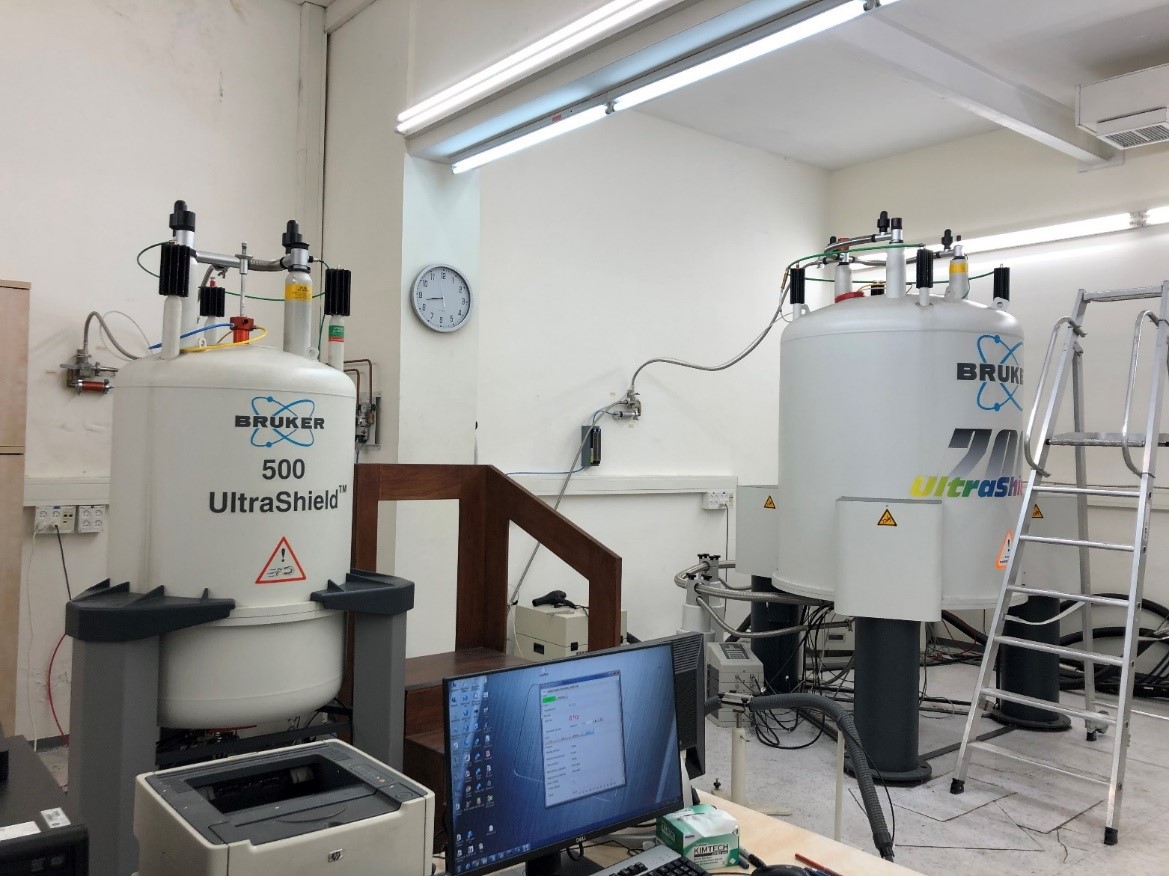Nuclear Magnetic Resonance Facility

Nuclear magnetic resonance spectroscopy is a technique that allows the detection of the nuclei of many elements, providing information about their chemical environment by aligning their spins in an external magnetic field and causing energy transitions by pulses of radio frequency.
Our unit includes six modern instruments varying in magnetic field from 4.7 to 16.4 T, corresponding to proton (1H) frequencies of 200 to 700 MHz. We have probes allowing the detection of most useful nuclei at a wide range of temperatures.
Two of the instruments (200 and 500 MHz) are dedicated to the study of solids. The state-of-the art 700 MHz spectrometer is dedicated to high resolution studies, including proteins, and is equipped with a high-sensitivity cryoprobe, cooled with liquid helium.
The NMR Facility serves a large community of users within the Department of Chemistry, other departments on-campus, other universities and industrial companies.
The NMR instruments are found in rooms 0.02 and 0.05 in building 211.
Contact:
Dr. Keren Keinan-Adamsky, Head of the NMR Unit 03-5317348 keinank@biu.ac.il
Dr. Michal Afri 03-5318304 afrimi@biu.ac.il
Dr. Hugo Gottlieb 03-5318828 Hugo.Gottlieb@biu.ac.il
Main use | Model | 1H frequency |
solid-state CPMAS and multinuclear NMR | Bruker Avance III | 200 MHz |
1D and 2D NMR | Bruker Avance III | 300 MHz |
1D and 2D | Bruker Avance III | 400 MHz |
1D and 2D NMR | Bruker Avance II+ | 500 MHz |
solid-state CPMAS and multinuclear NMR | Bruker Avance III | 500 MHz |
1D and 2D NMR - Cryoprobe nuclei: 1H, 13C,15N (indirectly) | Bruker Avance III | 700 MHz |



